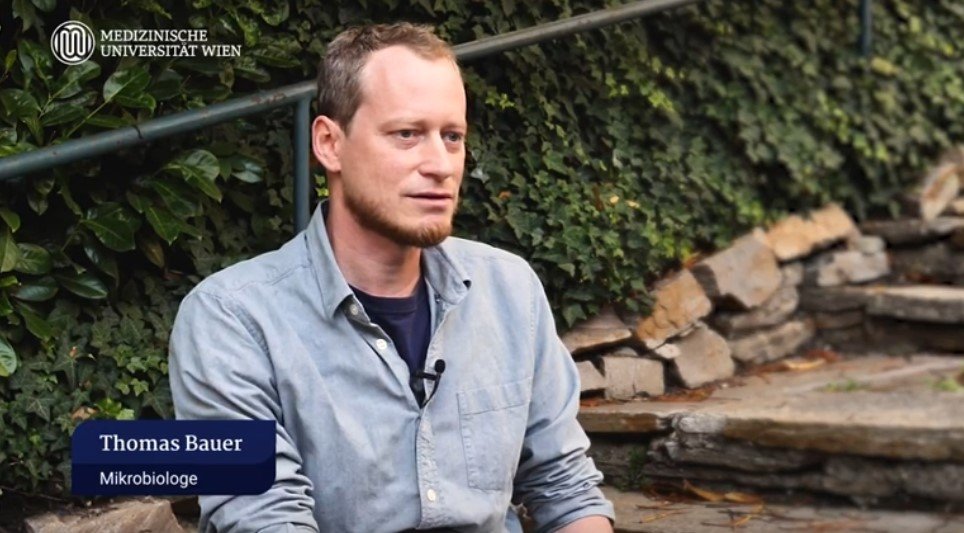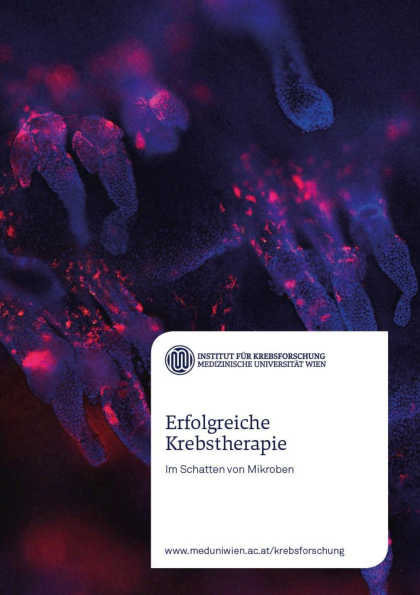Mag. rer.nat. Thomas Bauer, PhD
Group Leader
T: +43 (0)1 40160-57580 or +43 (0)1 40160-57624
thomas.bauer@meduniwien.ac.at
ORCID: 0000-0002-2076-7140
Research Focus
The science behind adverse events
The basic principle of conventional cancer therapy, like chemotherapy and radiotherapy, is the direct killing of fast dividing tumor cells. Yet, as these nonselective cytotoxic strategies also affect healthy, actively proliferating cells, patients suffer from stigmatizing adverse effects (e.g. complete hair loss, anemia, and diarrhea).
Because of recent progress in the field of precision medicine, tumor specific alterations can now be selectively addressed by targeted cancer therapies. Today, targeted cancer drugs are used as first- and second-line therapy with a high level of clinical efficacy. Interestingly, whereas with these drugs “classical” adverse effects of cancer therapy are not observed, patients treated with targeted cancer drugs frequently develop “novel” adverse effects that compromise the patient's quality of life and may even lead to therapy discontinuation. Tyrosine kinase inhibitors are, together with immunotherapy, among the most promising approaches for modern efficient cancer therapy.
In particular inhibitors for the epidermal growth factor receptor (EGFR-I), which are widely used to treat solid tumors such as colorectal and lung cancer, are associated with a high frequency of stigmatizing cutaneous side effects, including an acneiform rash, dry skin, pruritus, paronychia, alopecia or aberrant hair growth.
Importantly, there is a direct correlation between cancer therapy response and rash severity, indicating that the rash severity correlates with EGFR blockade efficiency. It has been established that cutaneous side effects are caused by the direct inhibition of EGFR signaling in the skin. The aim of this project is to decipher the mechanistic details of these adverse events.
This will then allow the identification of new therapeutic targets for prevention and management of the adverse effects. This will not only lead to an improved quality of life for the cancer patient, but will also allow a more aggressive application and the combination of different targeted cancer therapies. Therefore, we here aim to optimize the efficacy of modern cancer treatment.
Selected Publications
JAK-STAT1 as therapeutic target for EGFR deficiency-associated inflammation and scarring alopecia
Karoline Strobl, Jörg Klufa, Regina Jin, Lena Artner-Gent, Dana Krauß, Philipp Novoszel, Johanna Strobl, Georg Stary, Igor Vujic, Johannes Griss, Martin Holcmann, Matthias Farlik, Bernhard Homey, Maria Sibilia and Thomas Bauer
EMBO Mol Med (2024)16: 3142 - 3168 https://doi.org/10.1038/s44321-024-00166-3
BMPR1a is required for the optimal TGF-β1 dependent CD207 + Langerhans cell differentiation and limits skin inflammation via CD11c + cells
Mathias Hochgerner, Thomas Bauer, Victoria Zyulina, Elisabeth Glitzner, Sarah Warsi, Joanne E Konkel, Carmen Tam-Amersdorfer, Wanjun Chen, Stefan Karlsson, Maria Sibilia, Herbert Strobl;
J Invest Dermatol. 2022 Mar 14;S0022-202X(22)00195-6. doi: 10.1016/j.jid.2022.02.014.
Ex-Vivo Skin Explant Culture Is a Model for TSLP-Mediated Skin Barrier Immunity
Thomas Bauer, Daniela Gubi, Jörg Klufa, Philipp Novoszel, Martin Holcmann, Maria Sibilia;
Life (Basel) 2021 Nov 16;11(11):1237. doi: 10.3390/life11111237.
Hair eruption initiates and commensal skin microbiota aggravate adverse events of anti-EGFR therapy
Jörg Klufa, Thomas Bauer, Buck Hanson, Craig Herbold, Philipp Starkl, Beate Lichtenberger, Dagmar Srutkova, Daniel Schulz, Igor Vujic, Thomas Mohr, Klemens Rappersberger, Bernd Bodenmiller, Hana Kozakova, Sylvia Knapp, Alexander Loy, Maria Sibilia;
Sci Transl Med. 2019 Dec 11;11(522):eaax2693. doi: 10.1126/scitranslmed.aax2693.
Identification of Axl as a downstream effector of TGF-β1 during Langerhans cell differentiation and epidermal homeostasis
Thomas Bauer, Anna Zagórska, Jennifer Jurkin, Nighat Yasmin, René Köffel, Susanne Richter, Bernhard Gesslbauer, Greg Lemke, Herbert Strobl;
J Exp Med. 2012 Oct 22;209(11):2033-47. doi: 10.1084/jem.20120493. Epub 2012 Oct 15.
Medical University Vienna - November 2020
Thomas Bauer - Researcher of the month November 2020
(Video only available in German)

After activation, data will be sent to YouTube. Further information here: Data protection
Doktorinwien - 01/2020
New therapy against skin reactions
(Article only available in German)
Biermann Medizin - 13. December 2019
EGFR blockade: Innovative therapeutic approach could prevent serious side effects
(Article only available in German)
Institute for Cancer Research - 08/2019
Successful cancer therapy - in the shadow of microbes
(Brochure only available in German)
Financial Support
- FWF Einzelprojekt (PAT 5056523)


